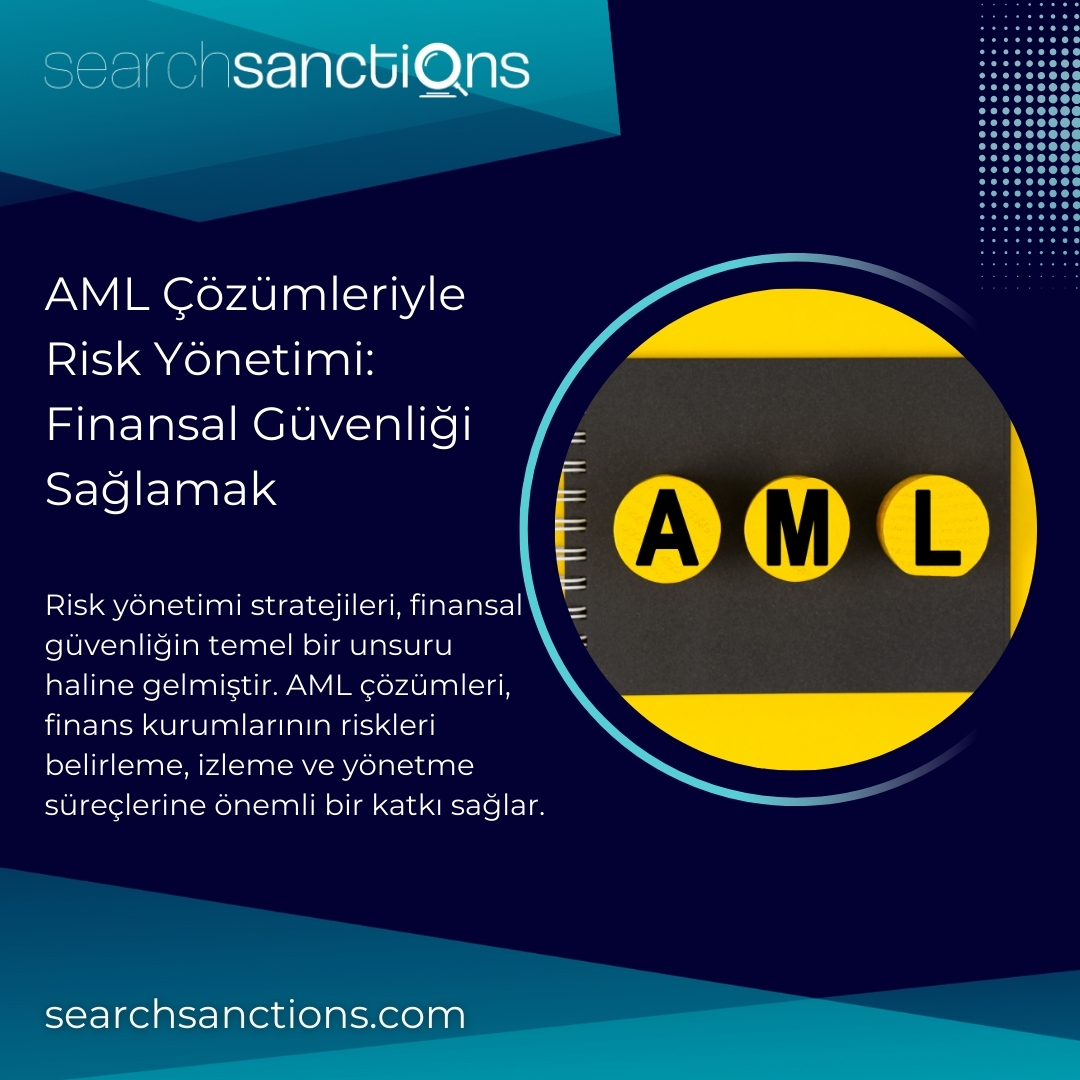 Risk Management with AML Solutions: Ensuring Financial Security
Risk Management with AML Solutions: Ensuring Financial Security
As today's financial world is becoming increasingly complex, security for financial institutions is not only limited to protecting customer data, but also preventing crimes such as money laundering and terrorist financing has become a major priority. At this point, Anti Money Laundering (AML) solutions have an important role for financial institutions.
I. Relationship between Financial Security and Risk Management:
Today, financial security does not only mean protecting customer data. It is also crucial to keep the financial system free from crimes such as money laundering and terrorist financing. In this context, risk management strategies have become an essential element of financial security. AML solutions make an important contribution to financial institutions' processes of identifying, monitoring and managing risks.
II. Basic Principles of AML Solutions:
AML solutions are based on certain fundamental principles and include various strategies to enhance the security of financial institutions. These principles include the following:
A. Customer Verification and Identification: AML strengthens processes to verify customer identities, thus preventing financial crimes that can be committed with false identities.
B. Identification of Suspicious Activity: AML solutions play an effective role in preventing financial crimes by detecting identified patterns of suspicious activity.
C. Monitoring and Reporting Processes: Through AML solutions, financial institutions continuously monitor customer accounts and report suspicious cases to regulatory bodies, creating an effective oversight mechanism.
III. AML and Risk Management Integration:
AML and risk management are two important complementary elements. AML solutions, when integrated into risk management processes, provide the following advantages:
A. Preventive Role Against Financial Crimes: AML plays a preventive role by detecting financial crimes and thus minimizes the risks of financial institutions.
B. Contribution to Risk Analysis and Assessment: AML solutions contribute to risk analysis and assessment using technologies such as big data analytics and artificial intelligence, enabling more informed decisions.
C. Integration into Industry and Governance Strategies: By adapting to sectoral risks and governance strategies, AML enables financial institutions to effectively integrate into their overall risk management strategies.
IV. Technological Innovation and AML:
Technological developments in the financial sector make AML solutions more effective and robust. In this context:
A. Artificial Intelligence and Machine Learning Applications: AML becomes more effective by analyzing and learning from large data sets, supported by artificial intelligence and machine learning.
B. The Role of Blockchain Technology: Blockchain is used to ensure financial security by increasing transparency and trust across AML solutions.
C. Detecting Suspicious Patterns with Big Data Analytics: Big data analytics is a powerful tool within AML solutions to detect and analyze suspicious transactions.
V. Strong Customer Relationships and Financial Security:
A. Customer Education and Awareness: AML solutions provide financial security education to customers, enabling them to play an informed and active role against financial crime.
B. AML's Contribution to Customer Experience: AML helps financial institutions increase customer satisfaction by providing customers with a safer financial experience.
C. Relationship between Transparency and Customer Trust: By increasing transparency in financial transactions, AML solutions reinforce customer trust in their financial institutions.
VI. Application Examples and Success Stories:
Detailed information on real-life examples of financial institutions that have achieved success with AML solutions and the lessons learned from these success stories.
VII. Legislation and Regulations:
AML solutions are subject to various national and international regulations. This section discusses financial institutions' compliance with AML regulations and recent changes in these regulations.
VIII. Future Trends and Prospects:
Future trends in financial security and AML solutions, expected developments and analysis of changes in the financial sector.
AML solutions play a critical role in ensuring financial security. With evolving technologies in the financial sector, continuous updating and improvement of AML solutions is an important requirement to ensure financial security and to be prepared for future risks.
Request Demo
You can contact us as to our services, integration processes, request demo or customized solutions.

